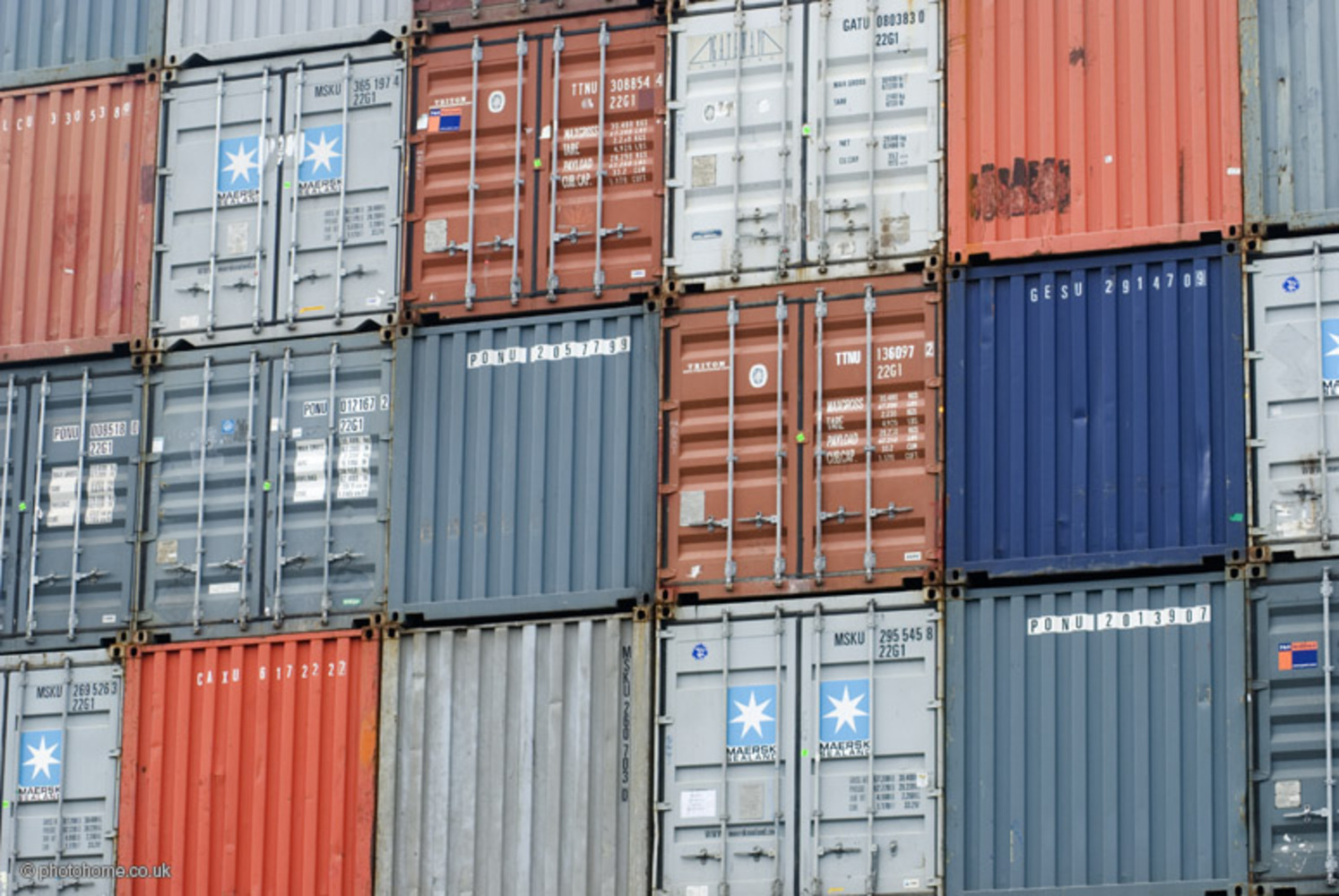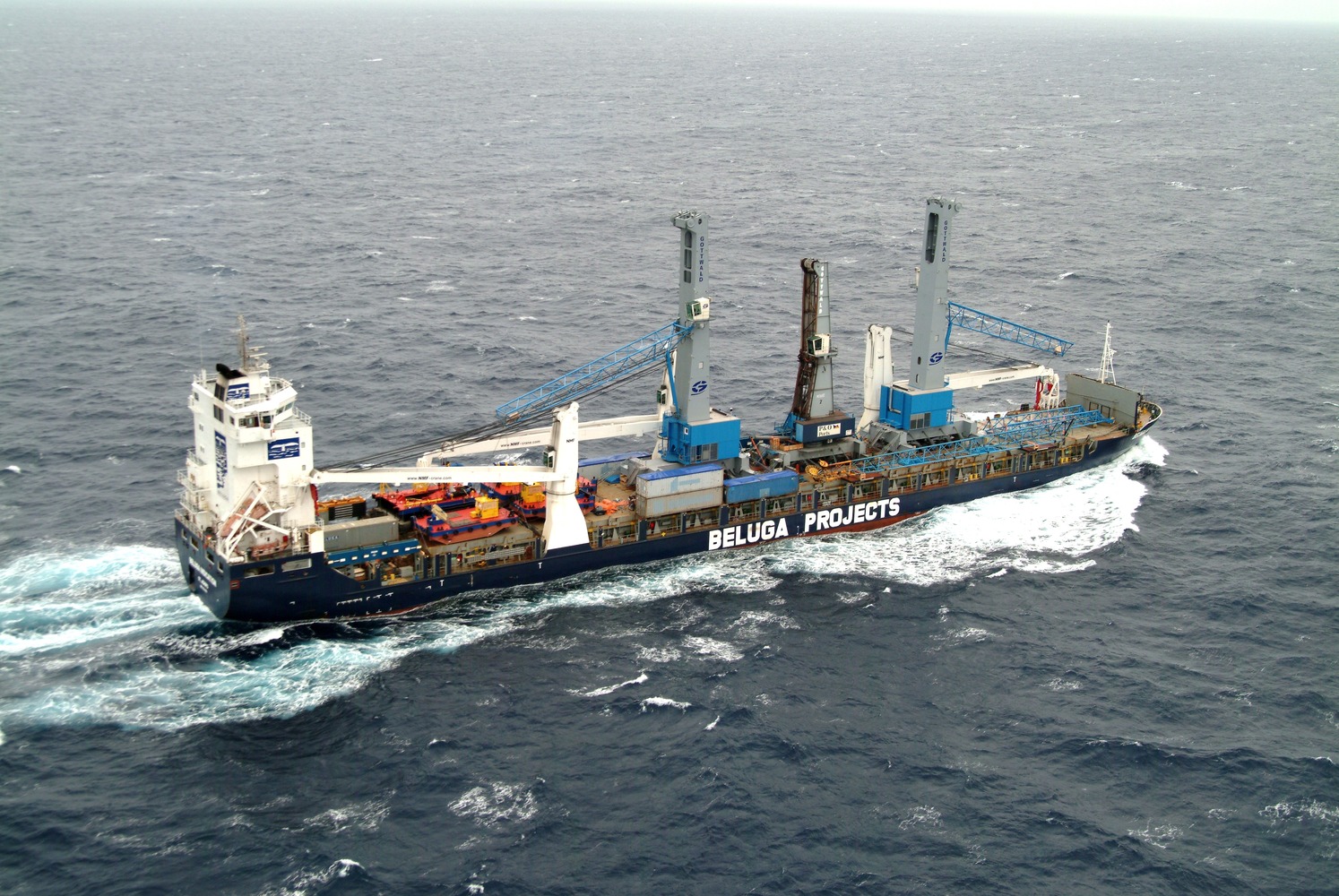Sustainable Shipping
Interview with
Helen - How can we make shipping more sustainable? Tristan Smith from University College London is here to shed some light on how. Hi Tristan...
Tristan - Hi, there.
 Helen - Thanks for joining us. We generally think about air freight as being the eco-villain when it comes to transporting things including people around the world, but shipping actually isn't environmentally innocent, is it? How do those emissions from planes and ships actually compare?
Helen - Thanks for joining us. We generally think about air freight as being the eco-villain when it comes to transporting things including people around the world, but shipping actually isn't environmentally innocent, is it? How do those emissions from planes and ships actually compare?
Tristan - If we look at the global level, then shipping has got a very similar magnitude global emissions of carbon dioxide to the aviation sector. Overall, it's about the same. The difference is that the amount of stuff that we move by ship is many, many times greater. So, ships are by themselves quite efficient carriers of cargo, but there are a lot of them in the world and so, they're still a significant issue in the carbon discussions that are going on.
Helen - That's the carbon discussion specifically, so we're talking about climate change but it's not just carbon that we should be really be thinking about when it comes to shipping transport, is it? We've also got other nasties coming out of shipping fuel as well including sulphur is a big problem.
Tristan - That's quite right. Historically, ships haven't had the most highly regulated ways of being operated and so, we're still burning fuels in ships which were outlawed on land many, many years ago. And at the moment, that means that we're still burning very high sulphur fuels, the ones with percentages of sulphur in their emission of about 3 ½ or 4% in some cases and that means that their significant health issues associated with that.
Helen - So there are health issues associated with sulphur. Am I right that actually, it counteracts climate change to some extent when the sulphur in the atmosphere helps reflect heat back into space?
Tristan - Well, I'm not a climate scientist expert.
Helen - That's okay.
Tristan - But I have heard that this is true, that there's a radiative forcing effect associated with sulphur emission which means that you actually get a cooling, but that is a very short term effect, so the sulphur is quickly broken down in the atmosphere, and we can't really think of it as being the same effect as the one associated with the carbon emission which obviously hangs around in the air for a lot longer.
Helen - Okay so, we've got this sort of slightly dirty fuels being used in the shipping industry and that overall, we've got the same amount of carbon coming out as we do from airplanes, but which are moving a lot more stuff around the world. And in terms of trying to make shipping more sustainable, where are you targeting your efforts? Are you looking at fuel or is it also about the boat designs as well themselves?
Tristan - I think it's got to be a consideration of everything. It's actually quite an expensive sector to decarbonise because as many people are aware, we've been building ships and moving stuff in them for a very long time, and got very efficient and good at it. But that doesn't mean that there isn't more that can be done. So, certainly, technologies that go on the ship itself, whether that's an engine modification or a means of assisting its propulsion in some way, such is a review of technology. And then the fuels are something that you can do something about as well and that you can move perhaps to liquid natural gas fuel which is being taught about at the moment, or even buy fuels or hydrogen at some point in the future perhaps.
 Helen - And there is to some extent, the fact that shipping fuels are sort of under the radar a bit and we're not really thinking about them. We've actually had a question coming from Dali Waverider who says that in my understanding, is that basically, marine fuel is asphalt, the drags of the oil refinery process, but the real problem is that, this all happens out at sea and there's no one really to complain about it, and wants to know if there are any moves underway to burn, cleaner fuels at sea. So why is it that we aren't really regulating what's going on in terms of shipping emissions and fuels being used?
Helen - And there is to some extent, the fact that shipping fuels are sort of under the radar a bit and we're not really thinking about them. We've actually had a question coming from Dali Waverider who says that in my understanding, is that basically, marine fuel is asphalt, the drags of the oil refinery process, but the real problem is that, this all happens out at sea and there's no one really to complain about it, and wants to know if there are any moves underway to burn, cleaner fuels at sea. So why is it that we aren't really regulating what's going on in terms of shipping emissions and fuels being used?
Tristan - Well, I think it's partly that. It's out at sea, it's out of sight, it's out of mind, and so quite often, doesn't get the clamour of public opinion that might drive changes in other industries. It's also a very international industry and so, the regulation is very hard to bring in because you might change something in Europe, but in practice, everyone might fill their ships up in a different continent. So it's very hard to bring something in that's going to be universally effective. But there is currently a regulation due to come in force in 2020, which will mean that we can no longer burn sort of heavy fuel oils which is the generic term for the high sulphur fuels that are currently being burned on ships.
Helen - And there are some other environmental impacts of shipping as well, aren't there? I mean, one thing I suppose to consider is the issues of ballast water and carrying various species around the oceans that aren't supposed to be there. That presumably is something else that needs to be thought about.
Tristan - That's one of those unintended consequences that just all of a sudden, someone points out and you think, "Well, why didn't we think of that before?" Unfortunately, when a ship has discharged its cargo, it needs to take a water in order to make sure that when it goes back out to sea, it will be stable enough not to capsize. That water is pumped into the ship when it is in its port at which it's just offloaded its goods. And then as it moves across the oceans and comes to another part of the world, it will then pump out the water and that's been a very neat way of moving one species from one part of the world to another that probably wouldn't have got there under its own steam.
Helen - Absolutely. That's something that needs to be considered, but if we head back to the boats again, we've been using boats like you said for probably as long as we've been moving ourselves around the world. But can we radically redesign the way boats are made and the way we do travel across the oceans? Is there some way that we can sort of rethink the whole thing to make it even more sustainable today?
Tristan - Absolutely and I think there's a myriad of brilliant ideas out there that could all be fantastic solutions in the future to help tackle climate change and to make shipping a much more environmentally friendly means of moving goods, and make it the most environmentally and more competitive than the alternative modes. But they all need to be thought through in terms of the detailed design, but also their economics because everything comes at a price, and some things are going to be cheaper than others.
Helen - And just to throw an enormous question out at you, what would you think the ideal situation would be if we were looking forward into the future of global container shipping and moving things around the world? What would be the best thing that we can look forward to, do you think?
Tristan - Well, I'm quite a big fan of wind power as a means of supporting some onboard fuel that could be used to take up and keep the ship on schedule if the wind suddenly dies. So for example, a hydrogen powered fuel cell or a biofuel-powered, very efficient diesel engine could be a means of providing a combination of technologies that could deliver that very efficient low carbon ship in the future.
Helen - So we could be looking at almost a sort of hybrid between a sailing ship and a cutting edge, 21st century battery powered ship to get us around the oceans maybe?
Tristan - I think it's a combination. There's nothing that's going to beat the fantastic economic efficiency of a fuel like oil and a diesel engine, but it's going to be a combination of things that comes in to do something similar.









Comments
Add a comment